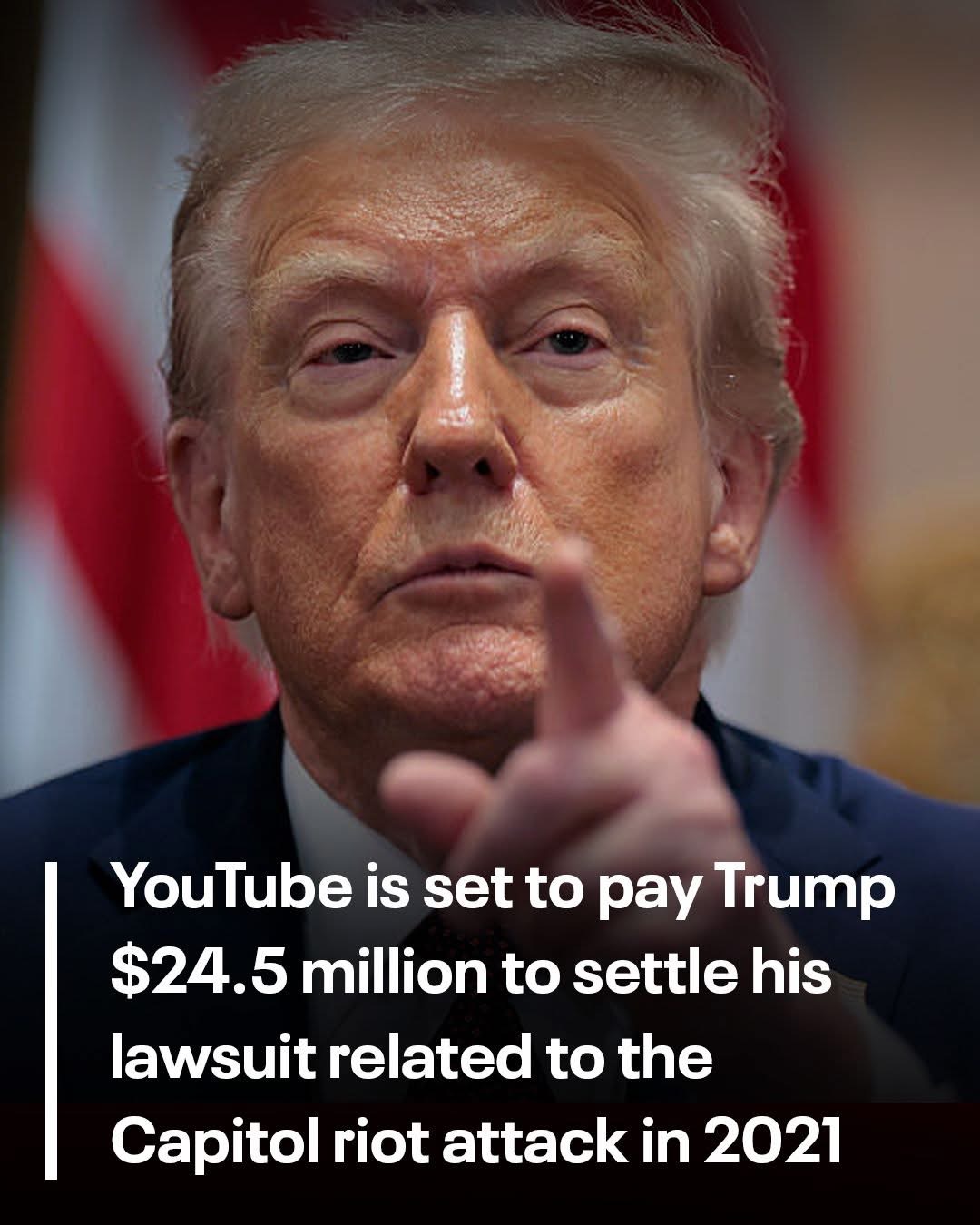YouTube to Pay $24.5 Million to Settle Trump’s Lawsuit Over Jan. 6 Suspension
$24.5 million deal marks latest resolution in disputes over Jan. 6 social media suspensions

YouTube to Pay $24.5 Million to Settle Trump’s Lawsuit Over Jan. 6 Suspension
$24.5 million deal marks latest resolution in disputes over Jan. 6 social media suspensions
YouTube to Pay $24.5 Million to Settle Trump’s Lawsuit Over Jan. 6 Suspension
YouTube, a subsidiary of Alphabet Inc., has agreed to pay $24.5 million to settle a lawsuit brought by former U.S. President Donald Trump. The case stemmed from YouTube’s suspension of Trump’s channel in the aftermath of the January 6, 2021 attack on the U.S. Capitol, when major tech platforms imposed restrictions on his accounts citing risks of further violence.
Background of the Case
Trump’s YouTube channel, which had millions of subscribers, was suspended shortly after the events of Jan. 6. The platform said at the time that the decision was made to reduce the risk of violence and the spread of harmful misinformation. Trump later filed suit, arguing that the ban violated his rights and unfairly restricted his political voice.
YouTube reinstated Trump’s account in March 2023, but the lawsuit pressed forward, seeking damages and accountability for what Trump and his co-plaintiffs described as politically motivated censorship.
Terms of the Settlement
Under the settlement agreement:
- $22 million will be directed to the Trust for the National Mall, earmarked for Trump’s proposed White House State Ballroom project.
- The remaining $2.5 million will be distributed among co-plaintiffs, including the American Conservative Union and author Naomi Wolf.
- YouTube did not admit to any wrongdoing in agreeing to the settlement.
This resolution comes after similar settlements were reached with other social media giants:
Meta (Facebook/Instagram) paid $25 million.
X (formerly Twitter) paid $10 million.
Together, these cases highlight the continuing fallout from tech companies’ unprecedented decisions to suspend or ban the sitting U.S. President in 2021.
Wider Implications
Legal experts note that while the settlement amount is significant, YouTube’s refusal to admit wrongdoing underscores the complex balance between free expression, corporate content policies, and public accountability.
For Trump, the settlement represents both a financial and symbolic victory, reinforcing his narrative of having been unfairly targeted by Big Tech. For YouTube and other platforms, it is a way to close a contentious chapter while avoiding prolonged litigation and reputational risks.
What This Means Going Forward
The settlement illustrates how Big Tech platforms remain under scrutiny for their moderation practices, especially when they intersect with politics and free speech debates. As the 2024 U.S. elections brought renewed focus on misinformation and online speech, these settlements also serve as a reminder of the legal and financial consequences companies face when navigating politically sensitive decisions
Legal Analysis: What This Means for the Future
From a legal standpoint, the settlement highlights several important issues:
Precedent of Platform Liability
While YouTube did not admit liability, the willingness to pay such a large settlement may encourage more high-profile figures to challenge suspensions, testing the limits of platform immunity under Section 230 of the Communications Decency Act.
- Balancing Free Speech and Corporate Autonomy
Courts have long upheld that private platforms are not bound by the First Amendment in the same way as governments. However, the political weight of these cases shows that the tension between speech rights and corporate content moderation is far from resolved. - Impact on Big Tech Governance
With multiple settlements now on record, tech companies may revisit their moderation policies — not necessarily to change their standards, but to better protect themselves against costly litigation. - Signal to Future Plaintiffs
Trump’s settlements with YouTube, Meta, and X could embolden future political or high-profile plaintiffs who feel they have been unfairly silenced online. At the same time, platforms may become more cautious in their moderation of politically sensitive content.
Conclusion
The YouTube settlement closes another chapter in Trump’s ongoing disputes with Big Tech, but it also opens broader conversations about legal accountability, free expression, and the role of private platforms in shaping public discourse. For legal practitioners, policymakers, and tech companies, this case serves as a reminder that digital governance has real-world legal and financial consequences.
Need Legal Help?
Contact us today for a free initial consultation to discuss your legal needs and how we can help.
Get a Free Consultation